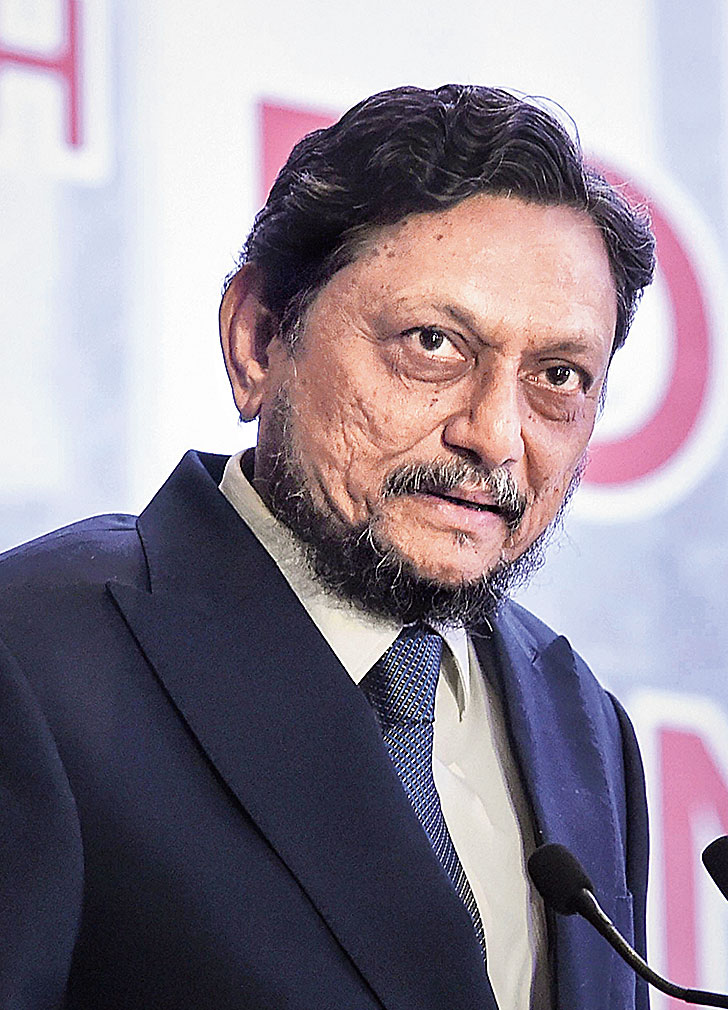Chief Justice of India S.A. Bobde on Saturday quoted Swami Vivekananda to say: “Liberty of thought and action is the only condition of life, of growth and well-being. Where it does not exist, the man, the race, the nation, or institution which bars the power of free thought and action of an individual — even so long as that power does not injure others — it is devilish and must go down.”
Prime Minister Narendra Modi, whose government has been accused of cracking down on free speech, was in the audience when Bobde addressed the international conference organised by the Supreme Court. The comments come a day after the BJP government in Karnataka slapped a sedition case on a teenager for chanting “Pakistan zindabad”.
Justice Bobde spoke minutes before Modi, who was the chief guest, addressed the gathering.
Justice Bobde said the makers of the Constitution had embraced a saying in the Rig Veda that can be translated as: “Let noble thoughts come to me from all directions.”
That India is a melting pot of myriad cultures and traditions is well known, he said. This is equally true of its judicial system and institutions, the chief justice added.
“We have assimilated legal cultures of all the civilisations who have come to our shores — the Mughals, the Portuguese, the French, the Dutch and finally the English. Right from conventional court systems to customary methods of adjudication and rules of evidence, our systems of adjudication have been a diverse mixture of traditions of the past infused with the present, looking towards the changing times.”
As an instance of the diverse traditions, he cited a practice in the Northeast of administering oath by holding the tooth of a tiger.
The chief justice said that ancient India had a well-established system of courts, with the rules all contained in the scriptures that prescribed a mandatory open hearing in the presence of officers of the court. The Vyasa Smriti, he said, provides the various stages of a valid decision: the plaint, a written statement, issues, evidence, its analysis, argument of the lawyer, provisions of law, that the decision should be decided by the members of the bench, and that the judgment should have a royal seal on it.
The chief justice also said a feature often neglected in the Indian Constitution is a chapter on fundamental duties, which imposes on every citizen the duty to abide by the Constitution and to respect its ideals and institution.
He said there are more than 50 countries in the world that lay down fundamental duties in their constitutions and recalled that Mahatma Gandhi had once said that “the exercise of right depends on one’s sense of duty”. This follows from what he had written in Hind Swaraj, where he argued that “real rights are a result of performance of duty”, Justice Bobde said.
Justice N.V. Ramana, the second senior-most judge of Supreme Court, in his address said the issues plaguing the world are terrorism, cyber-crimes, environmental degradation and health. On terrorism, he said: ‘The judiciary needs to appropriately respond to this problem by evolving innovative principles and jurisprudence so that terrorism is kept at bay, while, at the same time upholding the rule of law.”
He added: “Globalisation demands rule of law. With the increase in cross-border dealings, movement of citizens, goods and investment, there is a requirement of stronger trust between nations. This trust can be built by creating institutions with strong emphasis on the rule of law which creates a secure environment.”
R Balaji is a practising advocate in the Supreme Court











